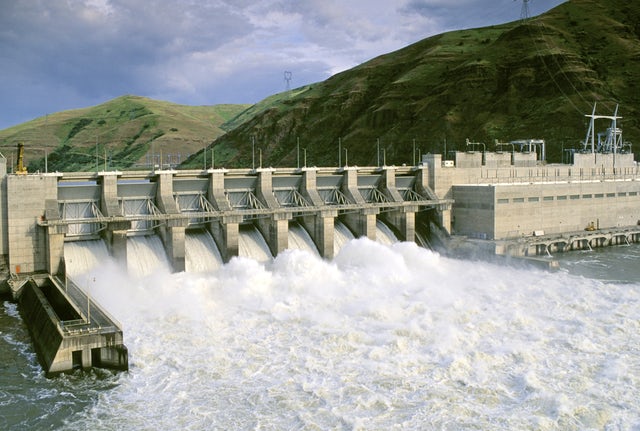forum
library
tutorial
contact

Idaho Congressman's Dam-Breaching Proposal
Ignores Looming Power Shortage
by Sens. Mark Schoesler, Judy Warnick & Tim Sheldon
Tri-City Herald, April 5, 2021
|
the film forum library tutorial contact |

|
Idaho Congressman's Dam-Breaching Proposal
by Sens. Mark Schoesler, Judy Warnick & Tim Sheldon
|
 Idaho Congressman Mike Simpson doesn't like the Snake River dams. But his $33 billion proposal to tear them down is hard to take seriously, when he glosses over the hard parts and ignores a central issue in the debate, the looming power shortage in the Pacific Northwest.
Idaho Congressman Mike Simpson doesn't like the Snake River dams. But his $33 billion proposal to tear them down is hard to take seriously, when he glosses over the hard parts and ignores a central issue in the debate, the looming power shortage in the Pacific Northwest.
Unfortunately, Simpson's rather airy and unrealistic proposal has helped convince people dam breaching is still worth talking about. This, after an environmental impact statement from the Army Corps of Engineers that should settle the question once and for all. About the only good thing we can say for Simpson's initiative is that it approaches an understanding of how costly dam-breaching would be, even if he underestimates quite a bit.
Simpson argues that the environmentalists will win, so the interests and communities that depend on the dams ought to take the best deal they can. He presents the peculiar Idaho view that wild salmon would return right away if only dams could be torn down in some other state. But the news that hasn't reached him over the state line is that these tired and shopworn arguments have all gone out the window in the last two years.
That was when the Washington Legislature passed the Clean Energy Transformation Act. This law forces utilities to retire coal plants early, by 2025. They can't replace with natural gas, because the same law forces that out in 2025. Republicans opposed this bill because no one has a clue how to replace that much power -- 21.8 percent of Washington's supply.
This crusade against fossil fuels has made the Snake River dams infinitely more valuable, and we have environmentalists and clean-energy advocates to thank. Utility groups and the federally-chartered Northwest Power and Conservation Council are warning blackouts are ahead. We slipped into the red zone this year as half of the enormous Centralia TransAlta coal plant was closed.
All coal plants in the Pacific Northwest are expected to be gone by 2032, and the chance of blackouts will triple. That's with current demand. Electric cars will only add to that.
Meanwhile, the dams continue to pump out a steady 1 GW of power, and up to 3.6 GW during periods of peak demand. BPA tells us the dams have already saved our bacon several times.
Simpson addresses this issue in a back-of-the-napkin way, allocating $10 billion of federal money to building new power sources, and declaring that demolition could not begin until replacement power is assured. Then he says he expects it all to be tied up neatly by 2030.
Where does he propose we get the power? Does he think more windmills will do the job? Does he know the wind doesn't blow all the time?
Until policymakers adopt a sensible attitude toward nuclear power, there really aren't any good alternatives -- one reason the Army Corps said no to breaching last year.
Simpson makes an absurd argument, that the half-billion dollars BPA spends each year on hatchery programs and other fish restoration projects is too costly.
BPA's obligation would end if the dams come down, but not the need. Our experience on the Elwha shows rebounds are slow, if they occur at all. Experts agree the Snake programs would have to be maintained for some time, perhaps decades. Who pays for that? Simpson is silent.
As this debate enters its fourth decade, we've come to realize that restoring salmon runs on the Snake/Columbia river system isn't just a matter of removing dams. Runs from the largely undammed Fraser River system also have suffered recent declines, suggesting that the problem lies with cyclical ocean conditions and not a particular problem on the Lower Snake.
We might do more by demolishing the upriver dams in Idaho that offer no fish passage at all, and wall off hundreds of miles of habitat. No doubt that's why tearing down Washington dams sounds like such a good idea in Idaho.
Related Pages:
Snake River Dams Aren't Needed by Stan Kuick, Tri-City Herald, 4/15/21
learn more on topics covered in the film
see the video
read the script
learn the songs
discussion forum
